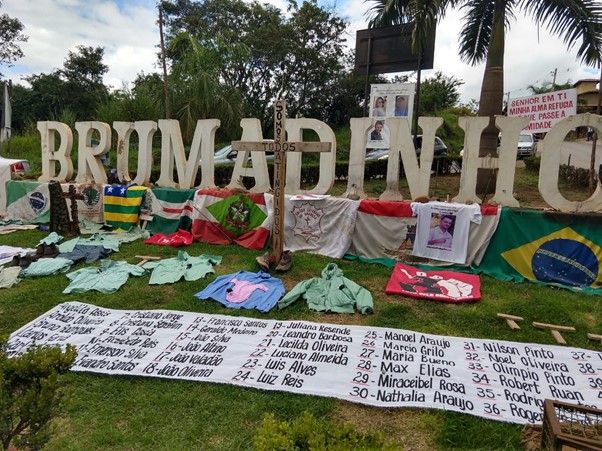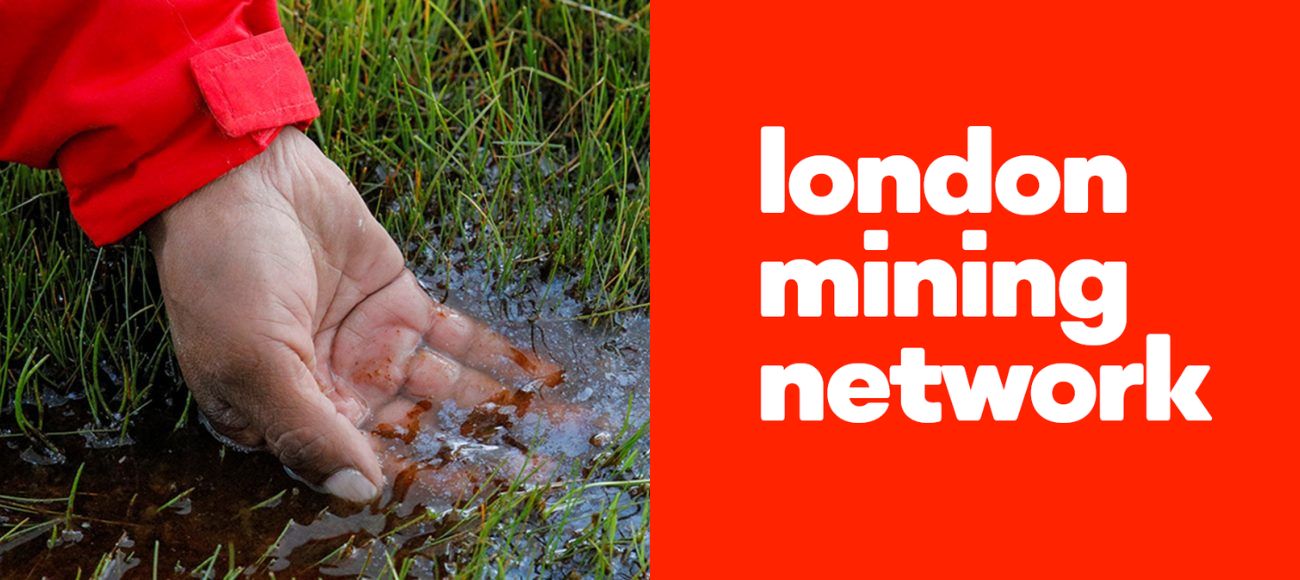LMN Blog February 2021 by Kinga Harasim
This is the latest post in LAB’s London Mining Network blog, a partnership initiative between LAB and LMN. It contains a roundup of Latin America-related content from London Mining Network’s newsletter, with additional material supplied by LAB, researched and written by Kinga Harasim.
1) Brazil: Vale to pay state of Minas Gerais $7 billion for the Brumadinho tailings dam collapse
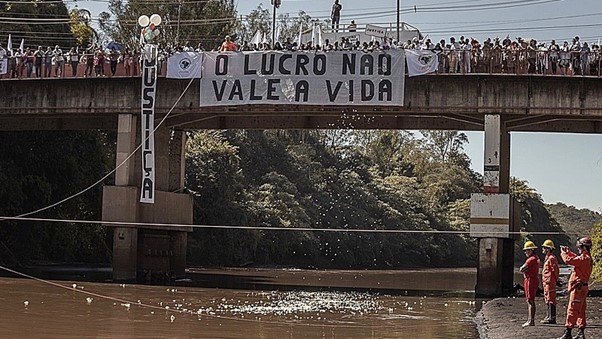
Two years after the Brumadinho dam disaster, Brazilian mining company Vale S.A. and the state authorities of Minas Gerais have finally reached an agreement on compensation. The company will pay US$7 billion, which will be invested in socio-economic and environmental reparation projects to mitigate damages that the region has suffered, such as income transfers to communities, water security, public transport and health services.
‘This is the largest reparation agreement ever signed in Latin America in financial terms and with the participation of the state,’ Minas Gerais authorities said in a statement.
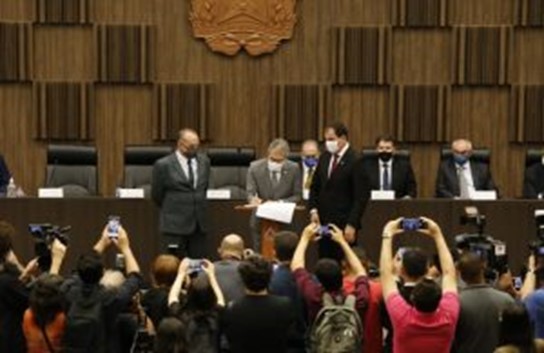
Vale claims to have already paid 8,900 individual claims to survivors and emergency aid to more than 100,000 people, as well as a programme of ‘psychosocial support, financial education and recommendations on the purchase of real estate and productive resumption.’ About 3,000 residents have already joined the programme, which is free and aims to help families reorganise their lives.
Victims call for deal to be renegotiated with their participation
However, many local people are far from satisfied with the agreement. When it was being signed, about 150 people were protesting in front of the court building, with the Movement of People Affected by Dams (MAB) drawing attention to the fact that negotiations were carried out in secret and without the participation of those affected.
‘One of the great problems we have today, in Brumadinho’s case, is that the communities are not themselves allowed to state their own interests, even if they are organised in collectives for that purpose,’ says MAB’s Tchenna Maso. ‘The state declares what the interests of the community are, without any kind of consultation.’
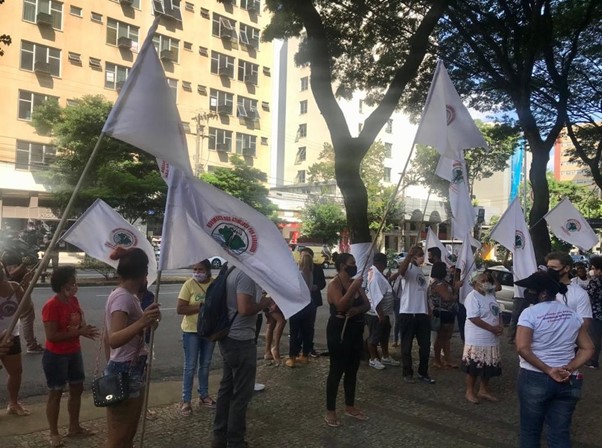
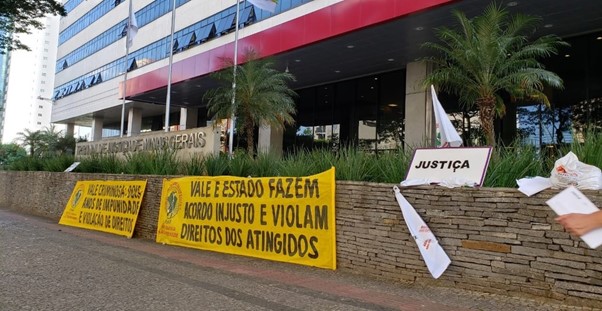
Two years on from the disaster, communities are still dealing with the consequences of the dam failure. The contamination of the Paraopeba river has affected access to water for 944,000 people, including local indigenous communities, for whom the river was an important part of their cultural rituals. While the company claims to supply affected communities with water cisterns, locals report ongoing problems.
‘The situation of the affected families is a very serious one, very critical at the moment,’ says MAB’s Joceli Andreol. ‘Many families are without drinking water, the water is contaminated, families are experiencing chaos in terms of agriculture and fishing. There are many families that depended on the Paraopeba river.’
And quite aside from the economic and environmental damage, the psychological damage to people in affected communities has been immense. Survivors, witnesses and families of the victims are suffering from trauma like that suffered by survivors of war. ‘People are not able to work because everyone is taking medicines. Everyone, I take several medicines. My nieces, everyone is in treatment,’ said Maria Aparecida da Silva, a local farmer.
MAB argue that the dam failure was a crime and that this agreement will allow Vale to escape due process. On 10 February, communities fielded a petition to overturn the deal and have all affected people included in negotiations.
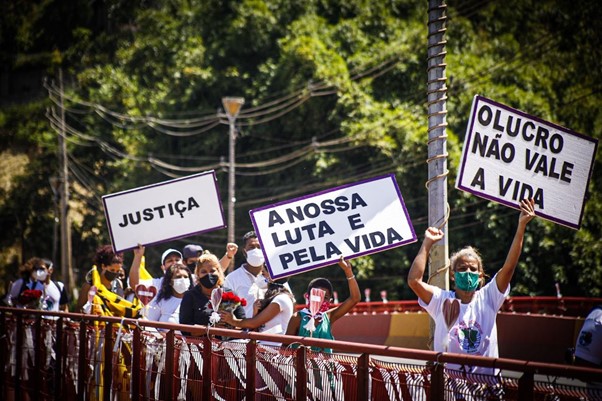
‘Vale is a criminal company. Today, with a heavy heart, we are thinking that it is not just Vale. It is the judiciary, it is the state that is abetting Vale’s internal strategy,’ – said the Colombian activist Juan Pablo Soler from the Movement of Those Affected by Dams (MAR), a collective similar to MAB which operates at the Latin American level.
The agreement does not include the individual lawsuits against parties involved in the dam rupture. Last year, Brazilian prosecutors charged 16 people with wilful homicide, including Vale’s CEO Fabio Schvartzman, as well as five people from the German audit company TÜV SÜD, who certified the dam as safe just four months before it collapsed, though there is evidence suggesting they knew it was a risk.
The federal investigation is still ongoing and there is a forensic report pending by universities of Barcelona and Porto, which has been delayed until March due to the pandemic.
2) Chile: trouble brewing for Antofagasta at Los Pelambres
In Chile, workers at Antofagasta’s Los Pelambres mine are in dispute with the company over pay and conditions.
‘We are demanding comprehensive improvement of working conditions, including a pay rise and the review of bonuses affected by the pandemic during 2020,’ says Luis Silva, the mineworkers’ union secretary. ‘It must be taken into account that Los Pelambres mine accounts for 60 per cent of the production of Antofagasta Minerals.’
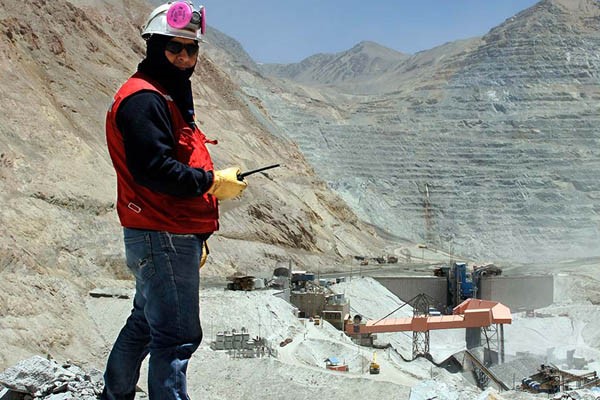
The union, which consists of 422 members, is in ongoing negotiations with the company. On 15 January, the union presented a proposal for their collective contract, which Antofagasta rejected ten days later.
Antofagasta recently avoided strikes in two of its mines by awarding bonuses of $20,000 to every worker. It may not be as easy in the case of Los Pelambres, which is among the top ten copper producers worldwide and the third in Chile. It is also the most profitable mine, with the lowest production costs. Despite the pandemic, the company reached its production targets for 2020, producing 733,900 tonnes of copper – a number expected to grow in 2021.

Despite this success, the workers, who have kept production going during the pandemic, feel undervalued and underpaid. ‘The company in its formal response has limited itself to respecting only the minimum level, without considering any of the points raised by the union in its submission’, argued the union board.
Los Pelambres is the latest in a series of collective mining negotiations in Chile. Plusmining estimates that roughly 20,000 workers will be involved in collective negotiation processes in 2021. This raises concerns about a possible fall in production, as these workers account for about 80 per cent of total production of the local industry.
Los Pelambres expansion to cost an extra $400m
PHOTO 10
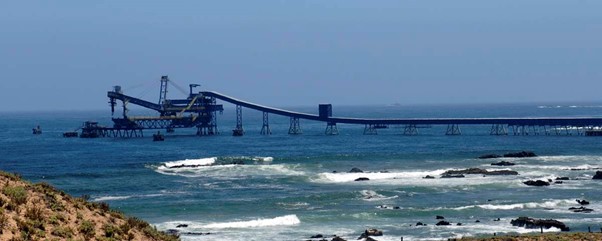
Antofagasta has also revealed that the expansion of Los Pelambres will cost more than initially planned. The increase, from $1.3 billion to $1.7 billion, is partly due to revisions to the marine works and pipeline costs, but also to costs related to fulfilment of Covid-19 restrictions.
The project includes the construction of a desalination plant in Los Vilos to produce water for industrial use in periods of scarcity, and the installation of new grinding and flotation lines at the Piuquenes Plant. The company estimates that these improvements will increase annual copper production by about 60,000 tonnes. The expansion is expected to be completed in the second half of 2022.
In other news…
Colombia: OECD to investigate Anglo American, BHP and Glencore over Cerrejón
BHP, Anglo American and Glencore, owners of the Cerrejón coalmine in La Guajira, may be forced to shut down operations pending the results of an investigation by the Organisation for Economic Cooperation and Development (OECD).
The investigation comes following a complaint filed by The Global Legal Action Network (GLAN), in partnership with Colombian and international NGOs, regarding Cerrejón’s long history of human rights abuses and environmental degradation. The complaint is based on various investigations and more than fourteen judicial rulings by the Colombian Constitutional Court.
If the OECD upholds the accusations, the companies may be forced to close the mine, carry out comprehensive environmental restoration and provide compensation for local communities.
Chile: Court sides with indigenous communities in Cerro Colorado water case
The Chilean Supreme Court has instructed BHP to halt its operations at the Cerro Colorado copper mine. The verdict is the result of a five-year battle by the San Isidro de Quipisca Indigenous Agricultural Association concerning the overexploitation of local water reserves by the company and the drying out of high-altitude wetlands in Tarapacá region. The court ordered the company to carry out an environmental review and the project is suspended until its completion.
Brazil: Anglo American under pressure to stay out of indigenous territories
An assembly of 200 participants from 47 Munduruku villages produced a declaration with the NGO Amazon Watch, demanding recognition of the Munduruku people’s rights to life and territory and a public commitment from Anglo American to stay out of indigenous lands in Brazil – even if the law changes to permit their entry. Anglo American refused, though they claimed they will always seek the consent of indigenous communities prior to the installation of any project.
Colombia: Top-level Drummond managers charged with financing paramilitaries
José Miguel Linares and Augusto Jiménez, the current and former presidents of Drummond Colombia, have been charged with financing the Juan Andés Álvarez Front of the paramilitary group Autodefensas Unidas de Colombia between 1996 and 2001. According to the Attorney General’s Office, the Front committed crimes against humanity, including murder, torture, threats, and dismemberment, with Drummond’s support. At least 3,382 victims have been registered.
To see other posts in the London Mining Network blog, click here.

